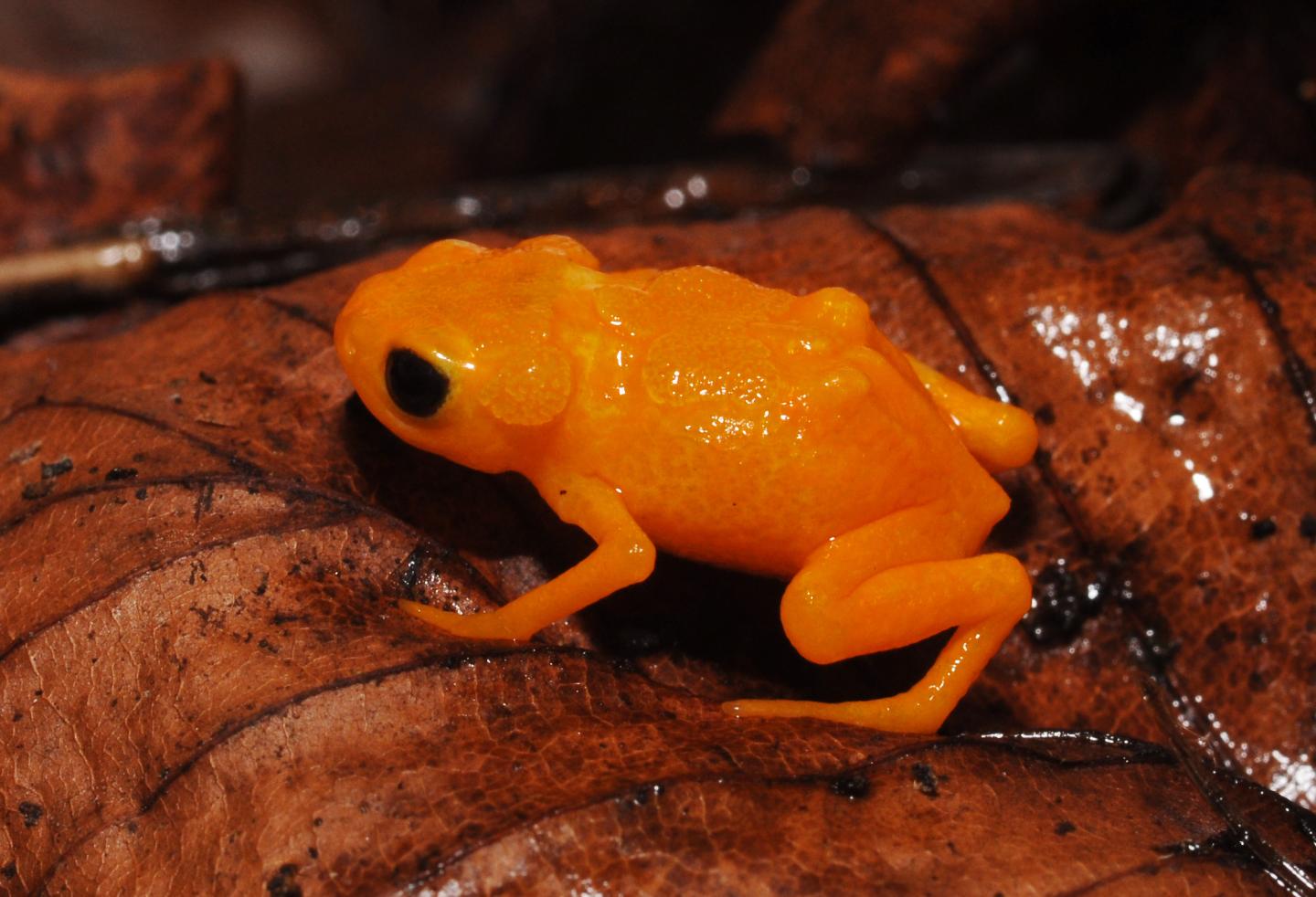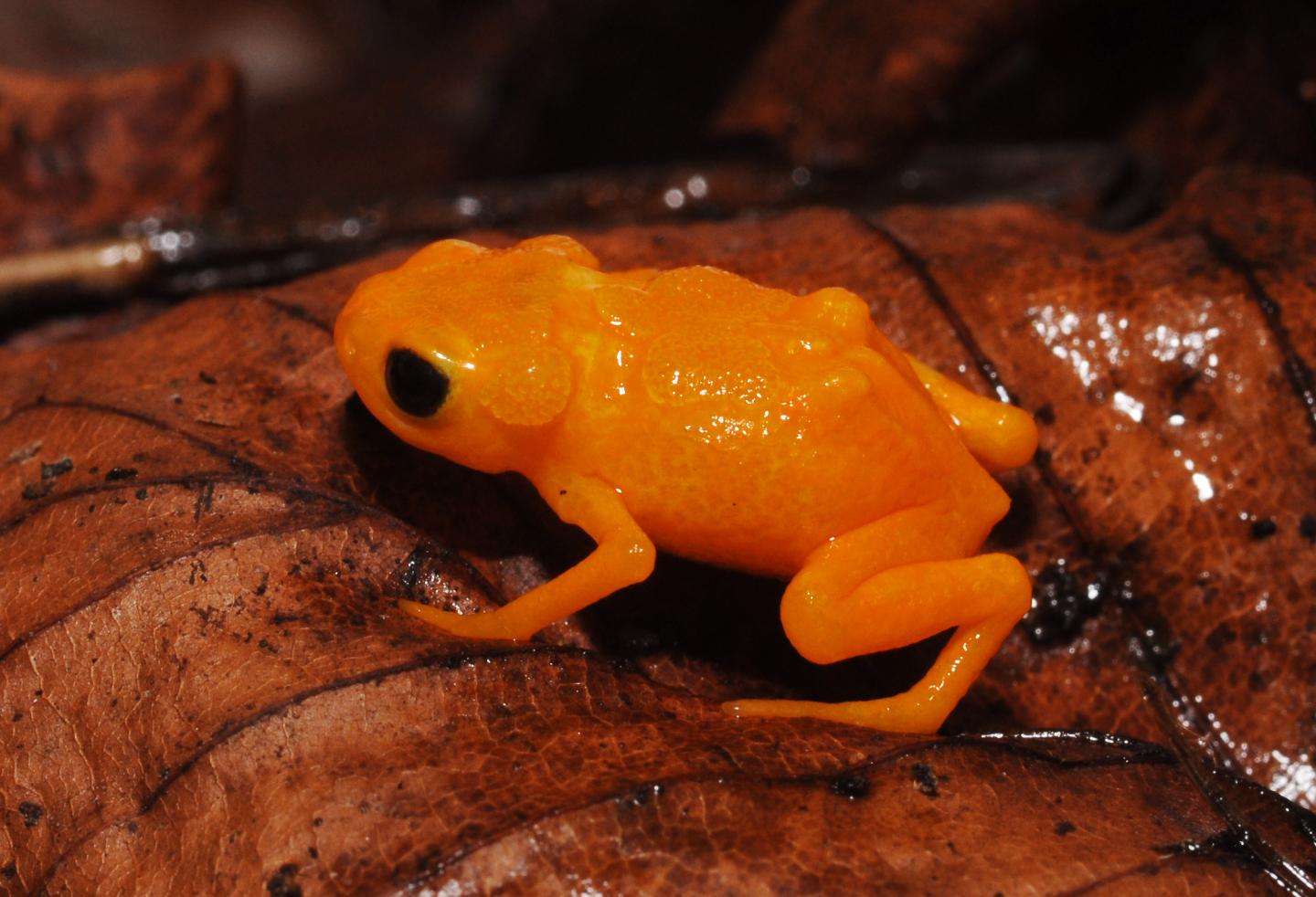
Credit: Sandra Goutte
Tiny Brazilian frogs still 'sing' despite not being able to hear themselves – this is the surprising discovery of new scientific research.
The new study, published in the journal Scientific Reports from the publishers of Nature, reveals that two species of pumpkin toadlets found on the leaf litter of Brazil's Atlantic forest are insensitive to the sound of their own calls, producing sounds outside their hearing sensitivity range due to a partly undeveloped inner ear.
The findings show that these species differ dramatically from other frogs and toads, who have their ears tuned to the dominant frequency of their vocalisations and rely heavily on their acoustic communication to find a mate.
The results are particularly surprising due the potential costs associated with signal production. Male frogs calling to signal their presence to the opposite sex use valuable energy stores and could alert predators and parasites to their presence. However, like many brightly-coloured tropical frogs, pumpkin toadlets are highly toxic which researchers believe could lessen the threat to them from predators.
The research was led by scientists from a number of international universities, including the University of Campinas, Brazil, the University of Southern Denmark, Denmark, and the University of Lincoln, UK.
As pumpkin toadlets do not have ears, researchers exposed them to broadband signals and non-invasively scanned their body with a micro-scanning laser Doppler vibrometer, to detect vibrations, aiming to identify potential areas that vibrate at the frequency of the male calls. While vibrations were detected in the lungs, neural recordings suggest that the frogs do not 'hear' these frequencies.
The frogs are thought to be a unique case in the animal kingdom of a communication signal persisting even after its target audience has lost the ability to detect, and could be an example of evolution in the making where visual communication is replacing acoustic communication.
The movement of the throat made when males call out could constitute a visual signal, representing a by-product of the true signalling behaviour.
Dr Fernando Montealegre-Z, Head of the Bioacoustics and Sensory Biology Lab in the School of Life Sciences at the University of Lincoln, said: "These species effectively sing for nothing. It is a default behaviour after losing their hearing. They may be in a stage of evolution towards the complete loss of acoustic communication, where the hearing system has been lost but the vocal signals still occur."
Studying the unique status of acoustic communication in these pumpkin toadlets further is likely to provide additional insights into the evolution and degeneration of acoustic communication systems in vertebrates.
###
The study, 'Evidence of auditory insensitivity to vocalisation frequencies in two frogs', is available to view online (Doi:10.1038/s41598-017-12145-5).
Media Contact
Laura Jones
[email protected]
01-522-886-242
@unilincoln
http://www.lincoln.ac.uk/home/
Original Source
http://www.lincoln.ac.uk/news/2017/10/1399.asp http://dx.doi.org/10.1038/s41598-017-12145-5





